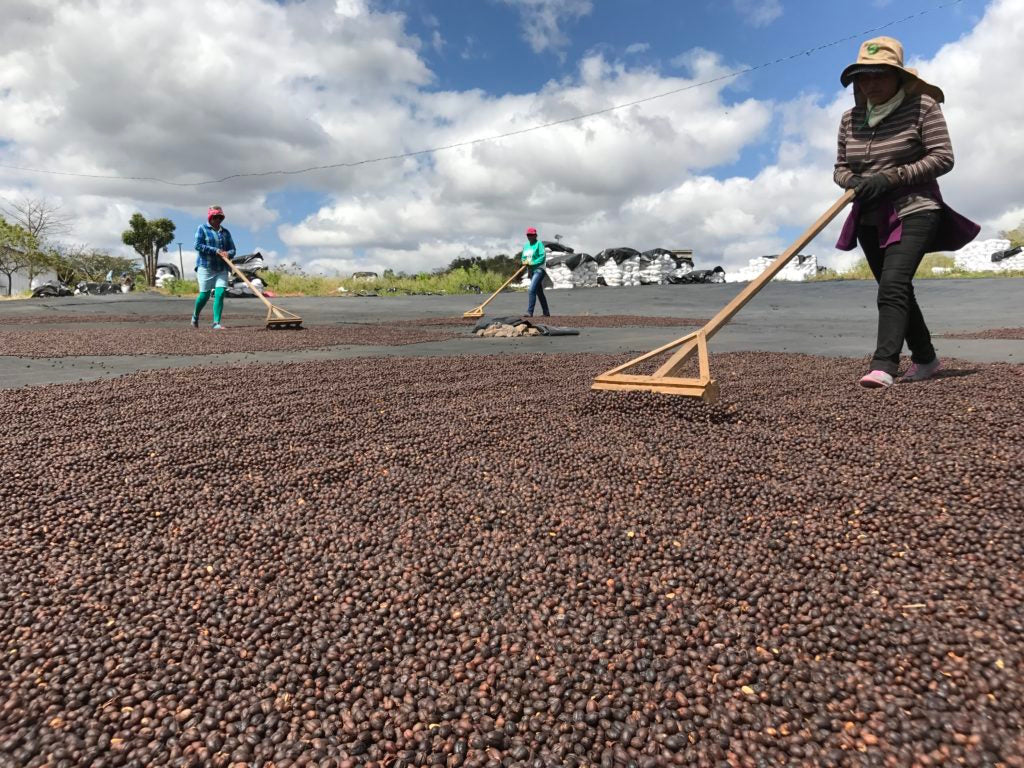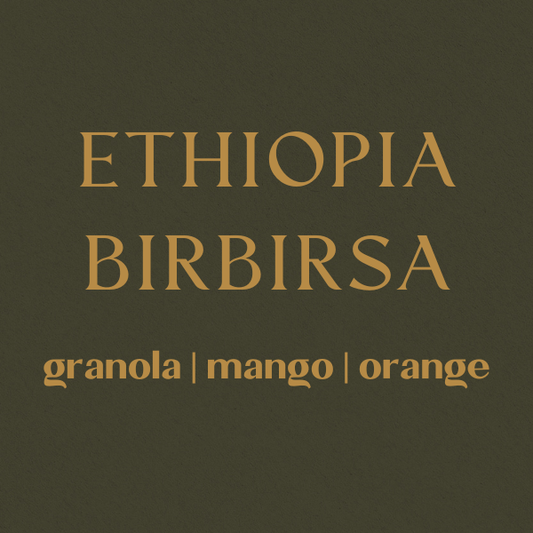
Natural
The Natural (Dry) Method of Coffee Processing
1. Overview and Origins
The Natural process, also known as the dry process, is the oldest known method of coffee processing. It originated in Ethiopia and Yemen—two of the earliest coffee-growing regions—where arid climates made water-intensive methods impractical. To this day, it remains a widely practiced method in regions with limited access to clean water or consistent infrastructure.
In contrast to the washed (wet) method, the natural process involves drying the whole coffee cherry with the fruit and mucilage still intact, before the seed (bean) is mechanically removed. The result is a distinctive and often fruit-forward cup profile that has become increasingly popular in the specialty coffee market.
2. The Natural Process: Step-by-Step
- Harvesting: Ripe coffee cherries are picked—either by hand or selectively depending on the region. High-quality naturals require careful selection to avoid underripe or damaged cherries.
- Sorting: Cherries are typically sorted by density (via flotation) and visual inspection, removing floaters, green cherries, and overripe or insect-damaged fruit.
- Drying: The sorted cherries are spread out on raised beds, patios, or tarps and allowed to dry in the sun. This stage is the most time- and labor-intensive, taking 2–4 weeks, depending on climate conditions. Cherries are turned frequently to ensure even drying and to prevent fermentation, mold, or overfermentation.
- Hulling: Once the cherries reach optimal moisture content (usually around 10–12%), they are sent to a dry mill, where the dried fruit layers (skin, pulp, parchment) are mechanically removed, revealing the green coffee bean.
- Grading & Sorting: Beans are then graded by size, density, and sometimes color before export.
3. Flavor Profile and Sensory Impact
Naturally processed coffees are known for their bold, fruity, and aromatic profiles. Because the bean remains in contact with the sugary fruit pulp during drying, it absorbs more of the fruit’s compounds and esters. Common tasting notes include:
Berry and tropical fruit (e.g., blueberry, strawberry, mango)
Wine-like acidity or body
Chocolate, spice, or fermented undertones
Compared to washed coffees, naturals often have lower clarity but greater sweetness and body, making them popular in espresso, filter brews, and cold brew applications.
4. Quality Challenges and Defects
The natural process carries certain risks, particularly related to fermentation and drying control:
Overfermentation can lead to sour, vinegary, or alcoholic flavors.
Mold and mycotoxins may develop if cherries are not dried properly or are exposed to rain/humidity.
Uneven drying can result in a mix of over- and underdeveloped beans in the same lot.
Because of these risks, quality naturals require careful drying protocols, clean facilities, and regular monitoring—a challenge in some high-volume or low-resource settings.
5. Geographical Prevalence
Natural processing is especially common in:
Ethiopia – The birthplace of naturals, known for berry-forward flavors and floral aromatics.
Brazil – Large-scale mechanized drying of naturals, producing nutty, chocolatey, low-acid profiles.
Yemen – Traditional, rustic naturals with dried-fruit and spice notes.
Parts of Central America, Indonesia, and East Africa, where micro-lot naturals have emerged in response to specialty demand.
In recent years, experimental naturals (e.g., anaerobic naturals, extended-dry fermentations) have added diversity to the process and expanded its flavor range.
6. Market and Specialty Significance
Naturally processed coffees have seen growing acceptance and demand in the specialty sector. Their vibrant, fruit-forward profiles and potential for unique expression make them ideal for competition lots, direct-trade offerings, and roaster differentiation.
However, they also tend to polarize consumers: some love the jammy, complex character; others prefer the cleaner profile of washed coffees. As processing standards continue to improve, high-end naturals are increasingly recognized for both their complexity and consistency.
The natural process is a time-honored, resource-efficient method that produces some of the most dynamic and fruit-laden coffees in the world. While it presents challenges in quality control, careful execution can yield exceptional results. For producers in drier climates or with limited access to water, naturals also offer a sustainable path to specialty markets—and for consumers, a bold, flavorful cup rooted in history and innovation.
Shop Natural Process
-
 Sold out
Sold outEthiopia Suke Quto
Regular price From $20.00 USDRegular priceUnit price / per -
 Sold out
Sold outColombia Finca La Aurora Decaf
Regular price From $26.00 USDRegular priceUnit price / per -
 Sold out
Sold outEthiopia Birbirsa
Regular price From $19.00 USDRegular priceUnit price / per -
 Sold out
Sold outSumatra Ribang Gayo
Regular price From $20.00 USDRegular priceUnit price / per




